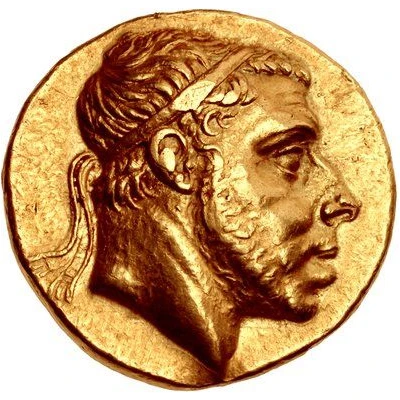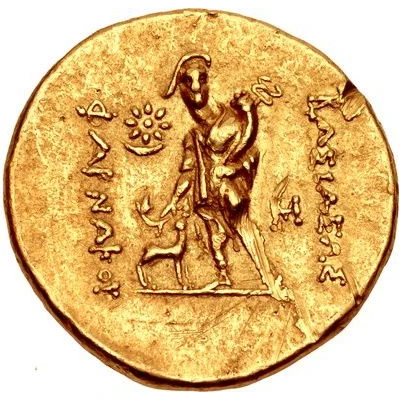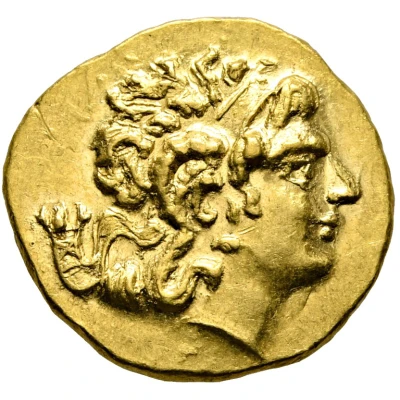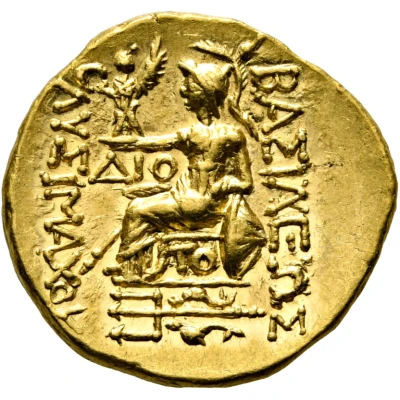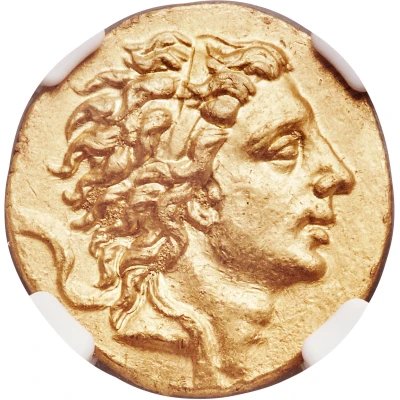
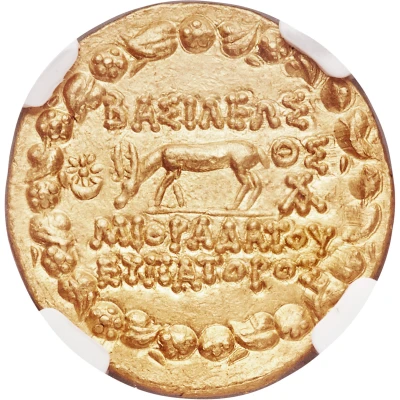

© Heritage Auctions
Stater - Mithridates VI (Pergamon) 89 BC - 88 BC
| Gold | 8.41 g | 21 mm |
| Issuer | Kings of Pontos |
|---|---|
| King | Mithridates VI (Μιθριδάτης Εὐπάτωρ) (120 BC - 63 BC) |
| Type | Standard circulation coin |
| Years | 89 BC - 88 BC |
| Value | Gold Stater (20) |
| Currency | Drachm |
| Composition | Gold |
| Weight | 8.41 g |
| Diameter | 21 mm |
| Shape | Round (irregular) |
| Technique | Hammered |
| Orientation | Variable alignment ↺ |
| Demonetized | Yes |
| Updated | 2024-10-10 |
| Numista | N#183234 |
|---|---|
| Rarity index | 97% |
Reverse
Stag to left grazing, inscriptions above and below; before head, a star on crescent; on right, monogram; all within ivy wreath.
Script: Greek
Lettering:
ΒΑΣΙΛΕΩΣ / ΜΙΘΡΑΔΑΤΟΥ / ΕΥΠΑΤΟΡΟΣ
ΘΣ
AX
Translation: King Mithridates VI Eupator (of noble father)
Comment
Mithradates VI Eupator, the Great (120-63 BC), dated Bithyno-Pontic year 209 (89/8 BC), Pergamon.Mithradates VI "the Great" was the last Hellenistic ruler to challenge the might of Rome. His long and eventful career spanned a nearly 60-year-reign in which he was a constant thorn in the side of the Romans as they sought to consolidate their conquests. His gold coinage falls into two groups: A mass mintage of gold staters imitating the types of Lysimachus of Thrace from more than two centuries earlier, and a much smaller and more carefully produced issue of dated gold staters with his name and portrait. The imagery deliberately evokes the memory of Alexander the Great, depicting himself as a semi-divine conqueror with flowing, windswept hair. These rare and desirable coins represent the last great example of Hellenistic portraiture in gold, and as such are highly prized. (Source: Heritage Auctions)
DeCallatay P005-D7-R2; BMC 1v; SNGvA 6676
Interesting fact
One interesting fact about the Standard circulation coin Stater - Mithridates VI (Pergamon) 89 BC - 88 BC from Kings of Pontos made of Gold weighing 8.41 g is that it features the image of Mithridates VI, also known as Mithridates the Great, who was a king of the Kingdom of Pontus in ancient Greece. He was known for his military campaigns against the Roman Republic and his efforts to expand his kingdom's territories. The coin's design may have been meant to symbolize the king's power and influence.
